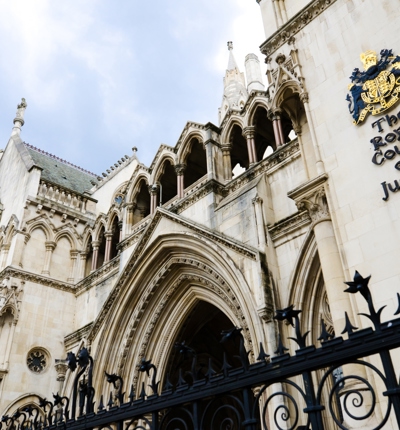
Paralysed man Paul Lamb applies to High Court to change assisted dying law
Paul Lamb, who is paralysed from the neck down, has this week applied to the High Court for permission to judicially review the UK's law on assisted dying. Through his law firm Leigh Day and supported by campaign group Humanists UK, Paul has now applied to the High Court in the next stage of his bid to challenge the law.
Posted on 05 July 2019
I have been fighting for this fundamental basic human right of choice over one’s own life since 2013. I need to have peace of mind that I can make the decision to end my life with dignity."
Paul Lamb
Paul, 63, was severely injured in a car accident in 1990 and has no function below his neck apart from limited movement in his right arm. Paul, who requires around the clock care, knows that, given his condition, he will inevitably need assistance to die. He argues that the current law – which prohibits any assistance under threat of up to fourteen years’ imprisonment – breaches his human rights against discrimination (Article 14) and respect for private life (Article 8).
In his application to the High Court, Paul argues that he has an irreversible disability which causes him intolerable pain and suffering, as a result of which he wishes to be able to take his own life at a time of his choosing. However, his disability renders him incapable without assistance of carrying out that wish. Assisting suicide is a criminal offence under sections 2 and 2A of the Suicide Act 1961. Whilst an able-bodied person could end their life, those provisions effectively prevent him from doing so.
He submits that sections 2 and 2A are discriminatory on the ground of disability. They put him and severely disabled people like him at a particular disadvantage, because those provisions effectively prevent him from exercising his autonomy over the fundamental decision of whether to end a life of intolerable suffering. Able-bodied people are not put at that disadvantage. That grave interference, and the failure to make an exception to the law for severely disabled people, is not justified. Making an exception would not undermine the protection of the vulnerable which is provided by the criminal law. Assisted suicide is not prosecuted in relevant cases in any event, and a narrow scheme may be adopted which would provide robust safeguards.
Paul submits that s.2 and 2A of the Suicide Act 1961 are incompatible with article 14 (the prohibition on discrimination) and article 8 (the right to privacy) of the European Convention on Human Rights. He invites the court to grant a declaration of incompatibility to that effect, pursuant to s.4 of the Human Rights Act 1998.
Commenting on his application Paul Lamb said:
"I have been fighting this fundamental basic human right of choice over one’s own life since 2013. I need to have peace of mind that I can make the decision to end my life with dignity. I am talking about my life, my decision, why should I be made to suffer? I feel so strongly about this. I have no option but to seek the court’s intervention again. I want to fight this, not just for me but for the many others in my position. We need to end this cruel and discriminatory law."
Humanists UK Chief Executive Andrew Copson said:
"We are proud to be backing Paul’s case in his efforts to change the law for those who are of sound mind and either terminally ill or incurably suffering. It is disgraceful that Paul has to face the truly terrible prospect of starving to death as Tony did, and be refused a dignified and peaceful ending to his life. The overwhelming public support for assisted dying proves the time has now come for our courts to break this impasse and allow people like Paul to be able to control the manner and timing of their own death."
Rosa Curling, solicitor at law firm Leigh Day who is representing Paul, said:
"We look forward to presenting Paul’s case in the High Court. Paul has waited patiently for many years for Parliament to properly debate the issue of assisted dying but he lives in constant pain and can wait no longer. We hope that the High Court will agree with his arguments that the current law on assisted dying, contained within the Suicide Act, is incompatible with the European Convention on Human Rights because it unlawfully discriminates against seriously disabled people who wish to end their lives. If the High Court agrees with Paul’s arguments the government will be forced to look again at the laws on assisted dying."
Alongside Jane Nicklinson, the widow of locked-in sufferer Tony Nicklinson, Paul previously challenged the UK’s 1961 Suicide Act in a case to the Court of Appeal in 2013, Supreme Court in 2014, and the European Court of Human Rights in 2015.

